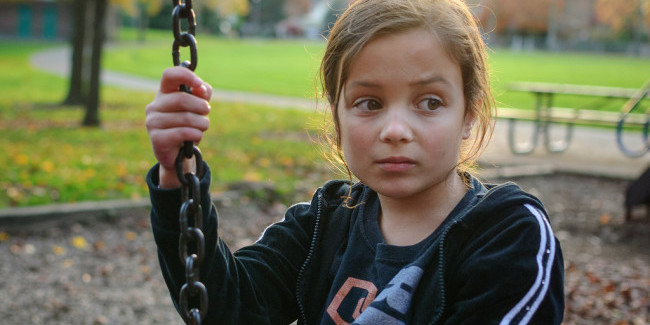 You may have heard that boredom and enthusiasm are contagious. Apparently, so is anxiety.
You may have heard that boredom and enthusiasm are contagious. Apparently, so is anxiety.
Anxious parents can end up with anxious children, and not from genetics alone. A study published in the American Journal of Psychiatry found that anxiety can be instilled in children based on their upbringing. Overly anxious parents can easily give rise to anxious children who fret, worry and stress out as much as they do.
While the premise may border on common sense, this is the first study to establish a clear connection between anxious parents and anxious children based on upbringing alone.
The Study
Study participants consisted of nearly 1,000 families, with each family having a set of twins. The twins could be either identical or non-identical, as long as both were the same gender and had children. The average age of the parents in the study was 45.
The study collected data on anxiety symptoms for each parent and his or her children, comparing the collected data with that of the parent’s twin and children. Sure, the children of one twin does receive 50 percent of the same genes as the children of the other twin, but this study let researchers examine the role of parental influence beyond the genetics.
The Results
Environmental factors appear to have a huge influence on child anxiety, with the symptoms of anxious children matching those of their anxious parents. Parental twins who were not overly anxious did not end up with anxious children, even when the children’s aunt or uncle exhibited symptoms of high anxiety.
Living with an anxious parent thus seems to have a greater impact on producing an anxious child than genetics.
The Course of Action
So what’s an anxious parent to do? Stop worrying, for starters. Yes, we know that one is easier said than done, especially if anxiety has been a long-term element in your life. It’s never too late to decrease your own levels of anxiety, a move that may help anxiety levels in your children.
Therapy can be helpful for anxiety, and it can also be helpful for teaching you ways to reduce the impact of your own anxiety on your children. That means if you can’t stop worrying yourself, you can still learn how to best protect your children from “catching” your anxiety. Not every anxious parent inevitably ends up with an anxious child.
If your child does appear more worrisome and anxious than other children, one suggested strategy is to teach your child the world is generally a safe place.
- Let them take age-appropriate risks rather than trying to shield them from everything.
- Encourage them to try again or take another course of action when something they’ve attempted did not work out.
- Focus on the positive, including choosing a positive path moving forward.
Acknowledging anxiety is always a positive path in any case, as it’s the first step in taking action to reduce it from your lives.
References:
Photo Credit: lorenkerns via Compfight cc





